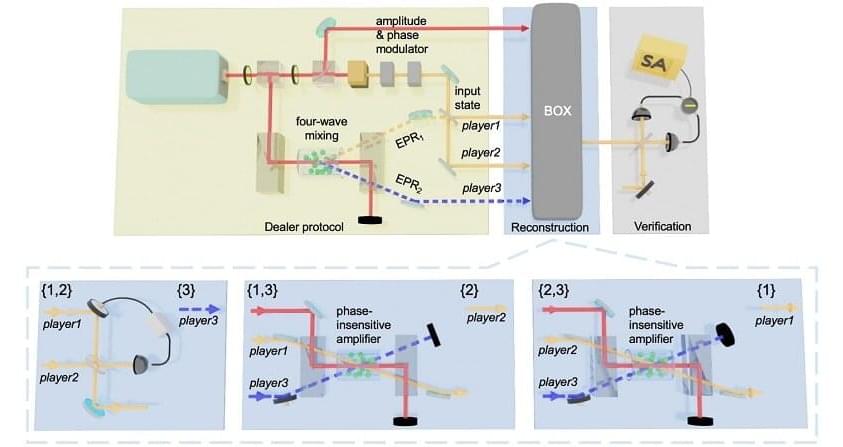Quantum information is a powerful technology for increasing the amount of information that can be processed and communicated securely. Using quantum entanglement to securely distribute a secret quantum state among multiple parties is known as “quantum state sharing.”
An important protocol in quantum networks and cryptography, quantum state sharing works like this (in simple terms): a secret quantum state is divided into n shares and given to n players. The secret state can only be reconstructed if k (where kn/2) players cooperate, while the remaining n-k players cannot access the information. This protocol can also be used for quantum error correction, allowing the reconstruction of the secret state even if some of the information is lost.
In quantum information, there are two types of systems: discrete variable and continuous variable systems. Discrete variable systems are good because they don’t lose information easily, while continuous variable systems are good because the generation and processing of quantum states are deterministic rather than probabilistic, which enables a high degree of precision.










Comments are closed.